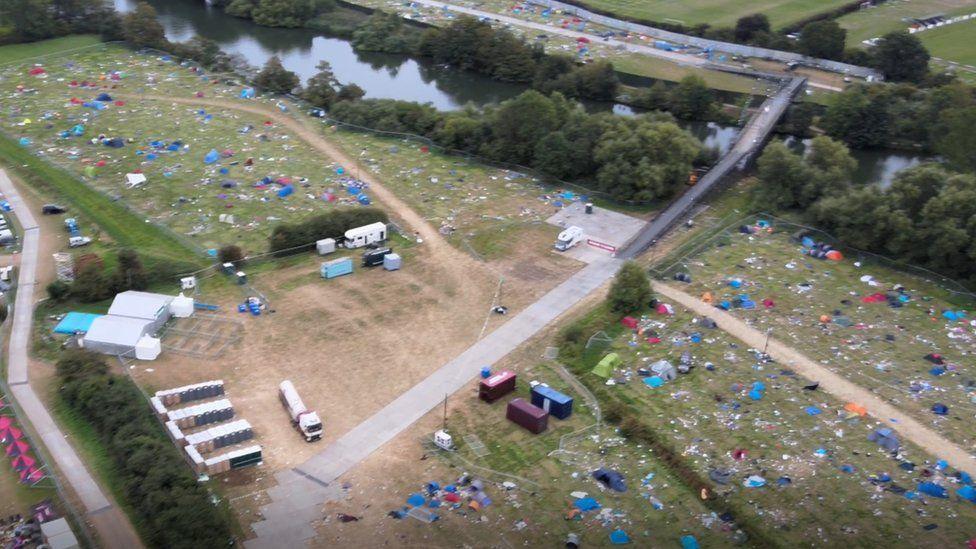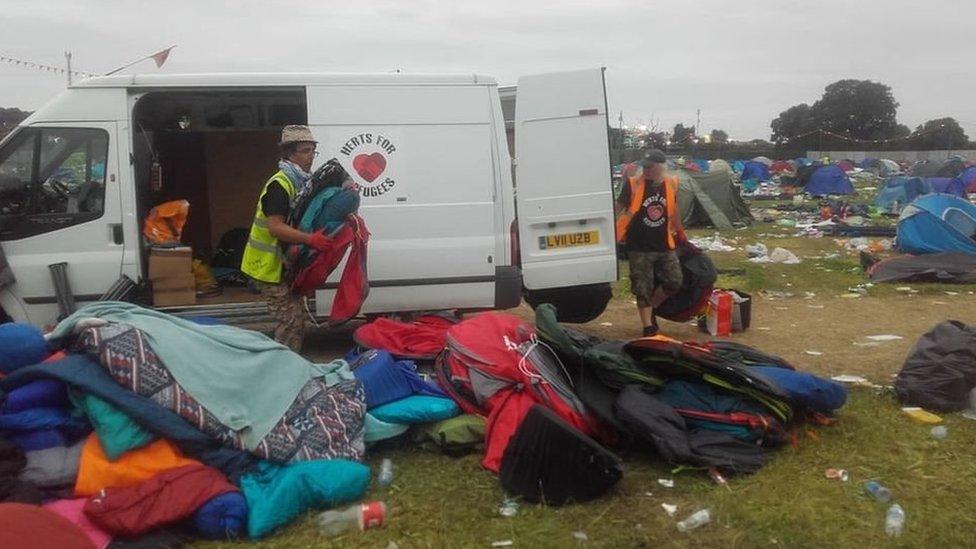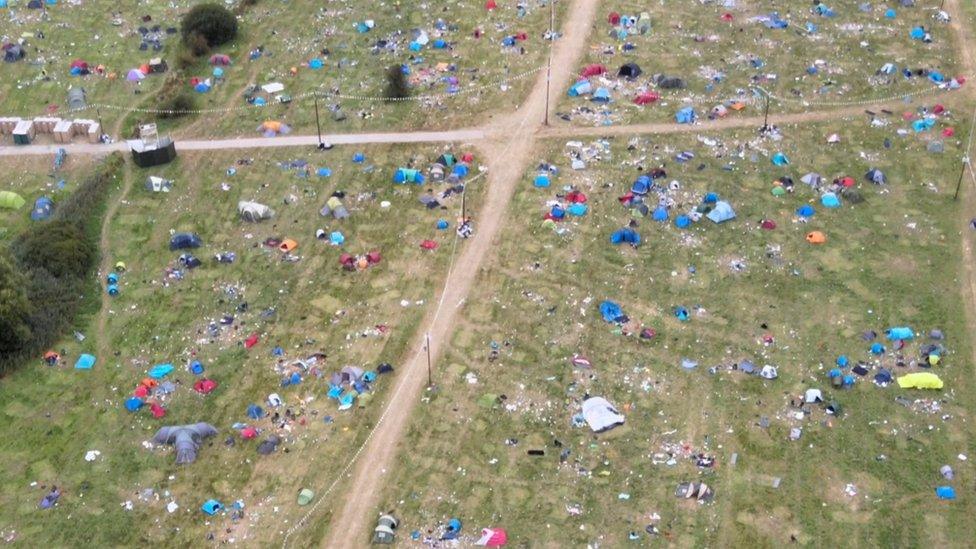Reading Festival: Deposit scheme mooted over discarded tents
- Published

Thousands of tents were left behind after last year's festival
Festival-goers have been warned it could be time for a "stick" approach after 2,300 tents were left behind at last year's Reading Festival.
A debrief to councillors also raised worries about drug testing and safety.
Despite efforts by the festival, discarded tents and sleeping bags have repeatedly been a problem.
But Victoria Chapman, who manages festival sustainability at Live Nation, warned a deposit scheme would be a too "heavy handed".
Reading councillor Adele Barnett-Ward said the company had a "carrot" approach by using a campaign to convince festival-goers to take their tents home.

A two-week clear-up operation took place to salvage equipment
"Maybe it's time to apply the stick," she commented. "I'm wondering what you can do to compel people to take their tents home?"
But Ms Chapman replied that imposing a deposit return if people took their tents away would be a huge logistical exercise, adding that a "heavy handed" approach would not work.
Last year's left over tents were distributed to refugees in France.
The debrief meeting also heard concerns after two 16-year-old boys were found to have gained access to the festival after hopping the gates.
They were found by security guards who left them in the Oxfordshire countryside rather than a safer location.
Drug testing
In response, Noel Painting, a Festival Republic representative, said: "We did have challenges with various teams during the 2021 festival as a result of Covid.
"We struggled for security staff and we had several teams that came in quite late and whilst we vet teams there were people we certainly won't be employing again.
"Once we found out what happened and who was responsible, they ceased to work, but I'll have to fact check that."
Mr Painting also said there had been a drop in back-of-house testing for drugs, whereby the drugs confiscated from festival-goers are tested for potency and harmful substances.
Councillor Graeme Hoskin, who urged the company to consider front-of-house testing at the entry gates, said: "...there's a lot of evidence that front-of-house testing can have a significant and major impact in reducing risks and deaths at festivals."
Mr Painting replied that the company was happy to look into it but argued that it could give off "a false sense of safety".

Follow BBC South on Facebook, external, Twitter, external, or Instagram, external. Send your story ideas to south.newsonline@bbc.co.uk
- Published2 September 2021
